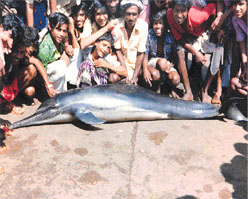
Killing them softly
Dolphins, the most playful and beguiling mammals of water, are on the verge of extinction. Awareness programmes will go a long way in preserving the species

Dolphins, the most playful and beguiling mammals of water, are on the verge of extinction. Awareness programmes will go a long way in preserving the species
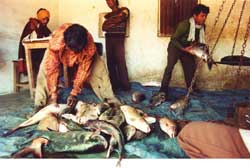
Villagers around Tawa reservoir in Madhya Pradesh are finally allowed to retain fishing rights

The insurance market can become an invaluable weapon to protect the environment against errant industrial units

In its bid to get out of poverty, the Bihar government has finalised a plan to drain out lakes and convert them to farmlands. But it seems to be unaware of the ecological consequences of such moves.
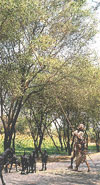
Nobody expected farm forestry and exotics to become a major source of firewood

Red rot, a fatal fungus eating into the sugarcane crop in western Uttar Pradesh, has left India drastically short on sugar. BIJOY BASANT PATRO finds a countryside caned to death

By 2010, the world's population will have gone up to 6 billion. But at the recent New York meeting on population and development, counting heads took precedence over critical issues such as women's nutrition and education
<p><span style="font-size:12px;"><span style="font-family: verdana,geneva,sans-serif;">Preparations for the Rio+20 United Nations conference on sustainable development have begun, but the first round of

<p><span style="font-size:14px;"><strong>Community Forestry - Nepal</strong></span></p> <p><img alt="" src="http://www.indiaenvironmentportal.org.in/files/country/nepal/forestry_hl.jpg" style="border-width: 2px; border-style: solid;" /></p> <p>The most significant regulatory development in support of community forestry was the enactment of the Forest Act in 1993 by the first elected parliament after the 1990 movement for democracy. The 1993 Forest Act guaranteed the rights of local people in forest management. Nepal became the world’s first country to enact such radical forest legislation, allowing local communities to take full control of government forest patches under a community forestry program.</p>

<p><span style="font-size:14px;"><strong>Food safety in Pakistan</strong></span></p> <p><img alt="" src="http://www.indiaenvironmentportal.org.in/files/country/pakistan/foodsafety_hl.jpg" style="width: 530px; height: 300px; border-width: 2px; border-style: solid;" /></p> <p>Over the last few decades, the question of ensuring adequate food safety standards has evolved into a much more complicated problem with a series of interconnected factors to be considered. The evolution of science and technology such as the development of high precision analytical equipments and improved agricultural and preservation techniques have made it possible to obviate the manifold safety hazards.</p>
<table align="center" cellpadding="0" cellspacing="0" width="740"> <tbody> <tr> <td class="p"> <div align="center"> <div class="txt padB10 pad10T"> <p class="txt MgnT2"> </p>
<p align="center"><img alt="" src="http://www.indiaenvironmentportal.org.in/media/iep/homepage/mukul_blog.jpg" style="width: 600px; height: 117px; float: left;" /></p> <p><strong>Moving from emission
<p><img alt="" src="http://indiaenvironmentportal.org.in/media/iep/homepage/msanwal_blog.jpg" style="width: 600px; height: 117px; float: left; margin: 14px;" /></p> <p> </p> <p><strong><em>Mukul
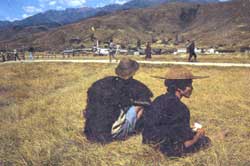
About 90 per cent of Arunachal Pradesh"s revenue is generated by its forests. Yet these very forests are under heavy pressure, thanks to the lucrative and often illegal timber trade thriving under political patronage
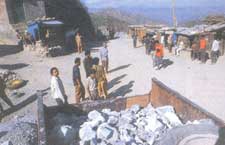
<font color=red><b>Controversy over Himachal limestone mining</b></font><br><br> The subject of limestone mining in ecologically fragile Himachal Pradesh has become a political football, with plans changing as governments change. Villagers are divided on

PLANET Earth would have been an utterly lifeless blob of space debris if it hadn"t been for the water that covers 70 per cent of its surface. But for reasons that have to do with both corporate human greed and amazing myopia, the vanguard of "modern" civi

...that"s what New Bombay residents seem to be consuming daily, with thousands of chemical industries and lakhs of vehicles burping out pollutants and snuffing out a dream
Studying the history of human interaction with nature can be very useful in formulating resource management policies. It can also provide a clearer insight into the causes of poverty

Why are there pesticide residues in bottled water? This isn"t an isolated query. It condenses 3-4 lines of questioning: • What kind of water do companies use as raw material?

Conservation policies practised in the developing world need to tread cautiously on territories which had for generations, belonged to the people, says a statement by the Centre for Science and Environment